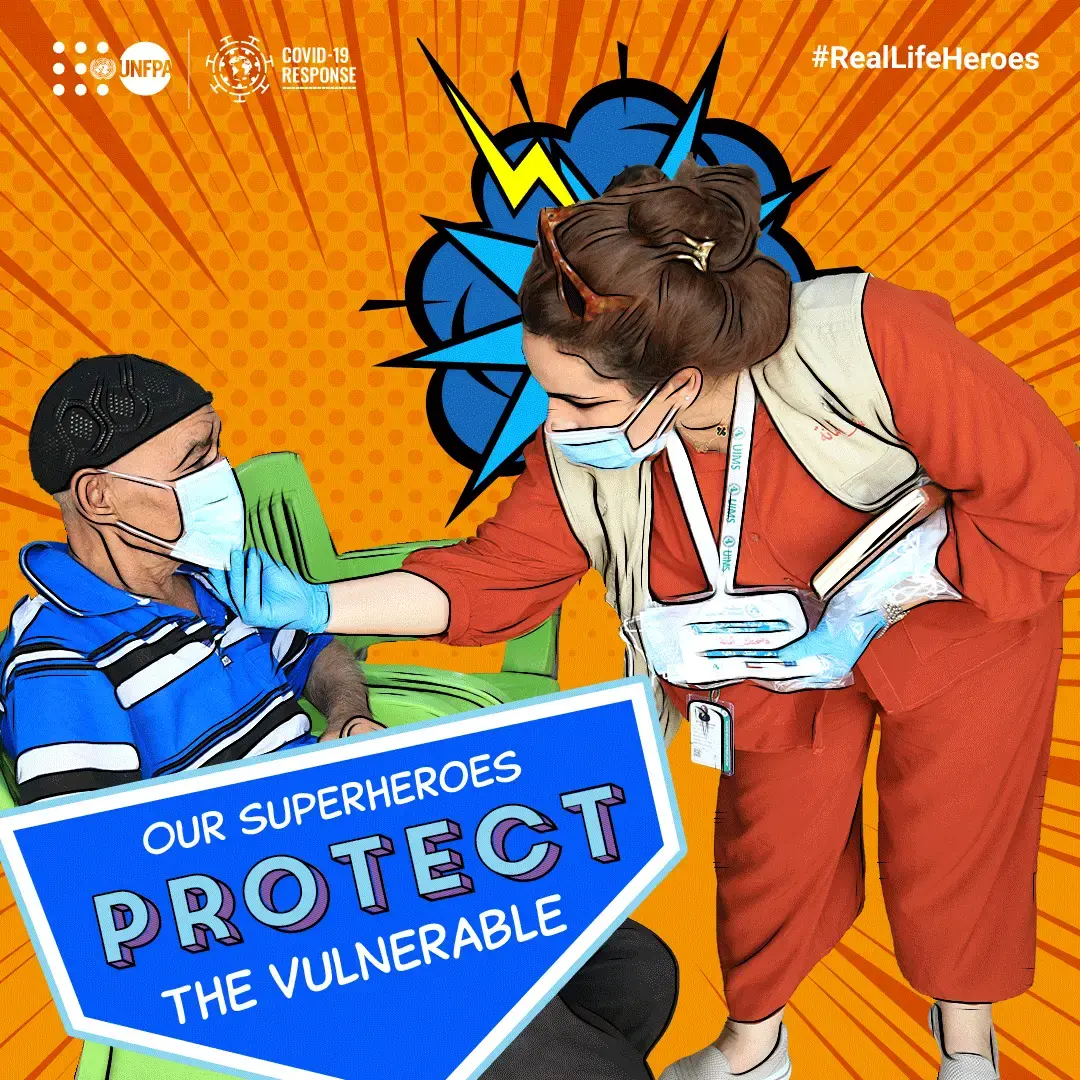Providing life-saving support during the pandemic
On World Humanitarian Day (WHD) August 19, the world commemorates humanitarian workers killed and injured in the course of their work, and we honour all aid and health workers who continue, despite the odds, to provide life-saving support and protection to people most in need.
This year World Humanitarian Day comes as the world continues to fight the COVID-19 pandemic over recent months. Aid workers are overcoming unprecedented access hurdles to assist people in humanitarian crises in 54 countries, as well as in a further nine countries which have been catapulted into humanitarian need by the COVID-19 pandemic.
This day was designated in memory of the 19 August 2003 bomb attack on the Canal Hotel in Baghdad, Iraq, killing 22 people, including the chief humanitarian in Iraq, Sergio Vieira de Mello. In 2009, the United Nations General Assembly formalized the day as World Humanitarian Day.
World Humanitarian Day is a time to recognize those who face danger and adversity in order to help others. It is also an opportunity to celebrate the spirit that inspires humanitarian work.
Today, millions of people around the world are affected by crises and need humanitarian assistance. Women and girls face especially difficult challenges in these situations. The risk of violence escalates, and their access to health care declines. More than half of all maternal deaths are believed to occur in fragile states and humanitarian settings.
UNFPA works closely with partners to ensure that reproductive health is integrated into emergency responses. UNFPA also deploys hygiene supplies, obstetric and family planning supplies, health personnel, counsellors and other support to vulnerable populations, and works to ensure the needs of women and young people are served through both the emergency and the reconstruction phases.
#RealLifeHeroes
A global campaign that celebrates humanitarians - a “thank you” to the people who have committed their lives to helping others.
On August 19, the eleventh year that we have marked World Humanitarian Day, we are paying special tribute to the real-life heroes who have committed their lives to helping others in the most extreme circumstances throughout the world.
The campaign focuses on what drives humanitarians to continue to save and protect lives despite conflict, insecurity, lack of access and risks linked to COVID-19.
This year, COVID-19 has been the biggest challenge to humanitarian operations around the world. The lack of access and restrictions placed by Governments around the world has resulted in communities, civil society and local NGOs being the frontline of the response.
Therefore, the campaign presents the inspiring personal stories of humanitarians who are treating and preventing COVID-19, providing food to vulnerable people in need, providing safe spaces for women and girls in lockdown; delivering babies; fighting locusts and running refugee camps, all amid the COVID-19 pandemic.
It is true that our obsession with myths and legends has been with us since the dawn of culture. Their fictional fantastic feats, embodied enemies, and arduous journeys teach us how to dream big and summon the courage needed to do what’s right.
However, the heroes of our world, here and now, are just as worthy of admiration and celebration because they’re real — they’re real: choosing to help in the most extreme circumstances — and their stories show that real life heroes exhibit an uncanny ability to persevere despite the odds, and to do so with humility and dedication.World Humanitarian Day is a time to recognize those who face danger and adversity in order to help others. It is also an opportunity to celebrate the spirit that inspires humanitarian work.
Millions of people around the world are affected by crises and need humanitarian assistance. Women and girls face especially difficult challenges in these situations. The risk of violence escalates, and their access to health care declines. More than half of all maternal deaths are believed to occur in fragile states and humanitarian settings.
UNFPA works closely with partners to ensure that reproductive health is integrated into emergency responses. UNFPA also deploys hygiene supplies, obstetric and family planning supplies, health personnel, counsellors and other support to vulnerable populations, and works to ensure the needs of women and young people are served through both the emergency and the reconstruction phases.
Join the global conversation today by using the hashtag #RealLifeHeroes.


